Japan’s hoya is a straight-up edible video game monster, and here’s how to prepare/eat it【Photos】
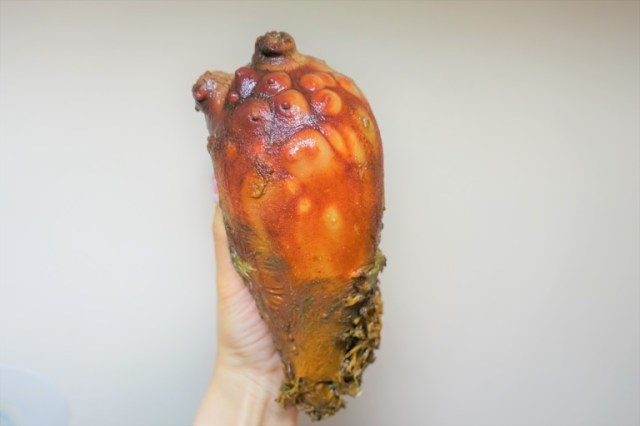
Today in the SoraKitchen: Taste-testing a regional delicacy that only one part of Japan isn’t terrified by.
Depending on what sort of gastronomic traditions you’re used to, certain foods that look absolutely mouthwatering to the average person in Japan might not seem so appetizing to you, like a plate of raw fish slices (sashimi), pile of salmon eggs (ikura), or bowl of gray or green noodles (soba).
Then there’s the hoya, or sea squirt. Yes, hoya are edible, and yes, there’s one part of Japan where it’s commonly eaten. But for most people, even in Japan, the hoya looks more like, quite honestly, like a grotesque monster. And I’m not kidding on the “monster” part, as punishingly difficult video game Elden Ring’s world is stocked with giant hoya for you to fight.
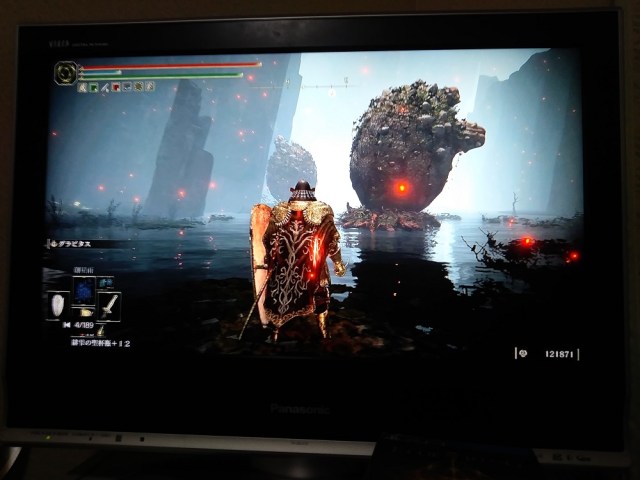
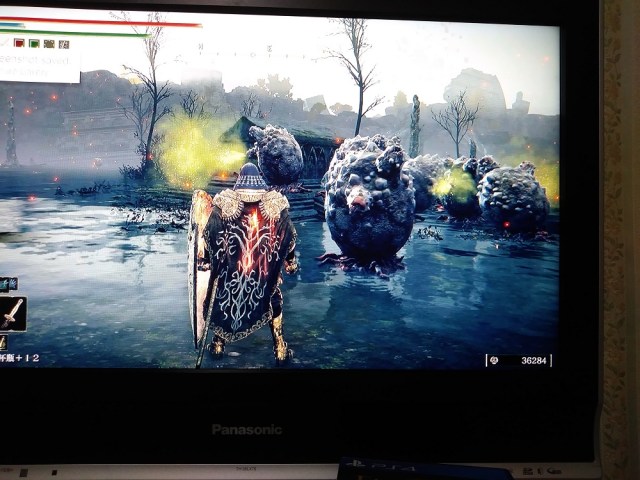
Thankfully, real-life hoya aren’t quite so big. That doesn’t mean they’re any less terrifying to look at, though.
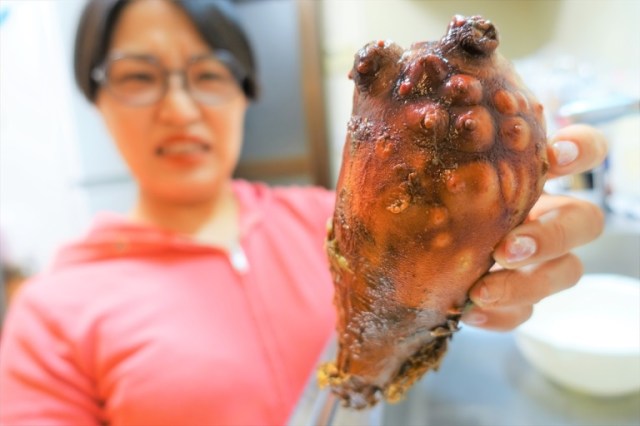
The northeastern Tohoku region is pretty much the only part of Japan where hoya are widely eaten, but you can sometimes find them at grocery stores in other parts of the country too. Our Japanese-language reporter Haruka Takagai sees them at her local market from time to time, but had never bought one.
▼ Because of the terror.
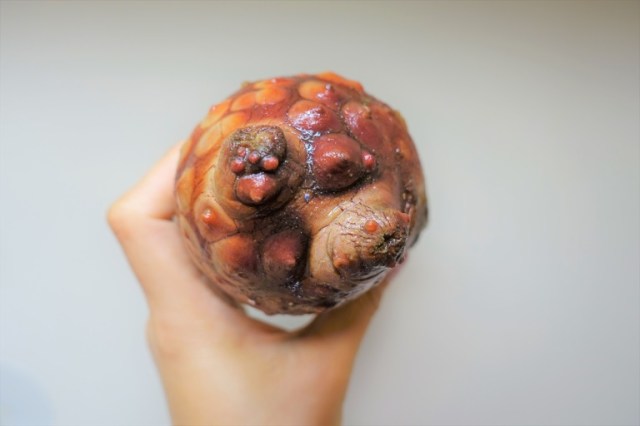
But recently Haruka decided to push herself out of her culinary comfort zone, and made the immensely brave decision to buy a hoya, prepare it herself, and eat it. The first part of that was easy, but it was when she got to the second step, preparing it, that she began to quiver with apprehension at what she’d gotten herself into.
First off, sea squirts are, indeed, animals, not plants or pimples capable of reproduction. Wikipedia describes them as “sac-like marine invertebrate filter feeders” that eat plankton, sucking seawater in through a valve on the top of their…head? Body? We’re not really sure what to call it. Their algae-based diet at least gave Haruka the peace of mind that even if her hoya were to suddenly resurrect, it at least wouldn’t try to eat her.
You can eat hoya like sashimi, slicing it into strips to consume raw, so let’s go through the prep process.
● Step 1
Touch the hoya. Ordinarily, this wouldn’t warrant being considered its own step, but considering how much determination it required for Haruka to actually come into physical contact with what, to her, looked like a bizarre alien creature, we’re counting overriding the voice in your head shouting “Danger! Danger!” as Step 1.
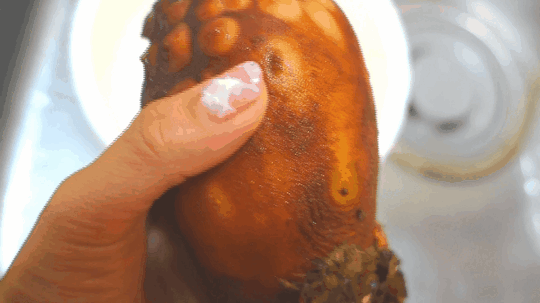
The hoya is squishy and springy to the touch, since it’s got a large, hollow cavity inside. Haruka gave it a few light squeezes, each accompanied by an irrepressible moan of distress. The bumpy texture wasn’t helping either, but she did her best to gather her nerves by telling her brain the lie that holding a hoya is just like holding a big lychee.
● Step 2
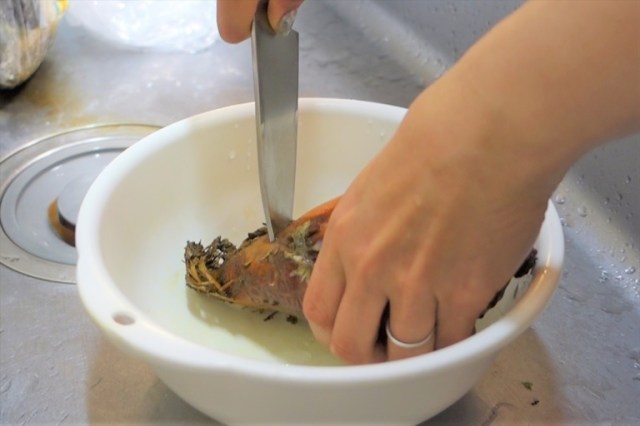
The base of the hoya isn’t edible, so that part needs to be sliced off, and you’ll want to use a bowl, not a cutting board. Why a bowl? Because there’s liquid inside. Of course there’s liquid inside! What kind of monster doesn’t leak goo when you cut it with your trusty blade?
Oh, and the liquid…
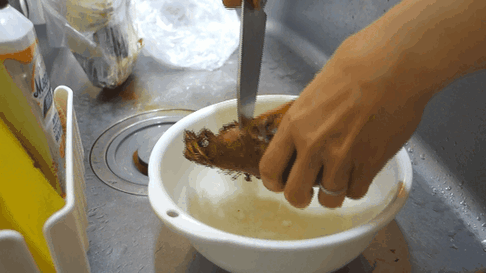
…comes spurting out when you puncture the hoya. Some of it actually squirted all the way up to Haruka’s eyes, causing her to scream, whimper, and ask herself why she hadn’t just made something more ordinary, like imitation octopus ball eggs, for lunch instead.
▼ “Whyyyyyyy???!!!???”
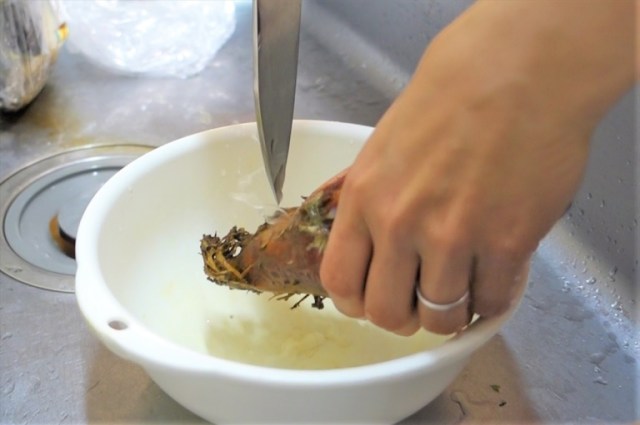
● Step 3
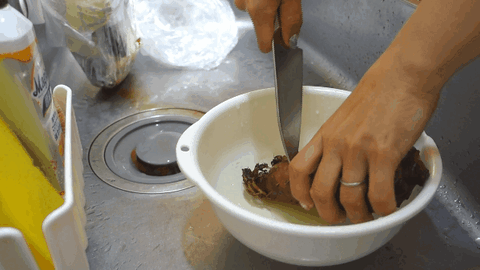
Wipe any hoya juice (or tears) from your face, and continue slicing until the base is completely removed. As Haruka did this, more and more liquid gushed into the bowl, and since she managed to keep it out of her eyes, she could see that it has a bright orange color, so it’s definitely not just leftover seawater.
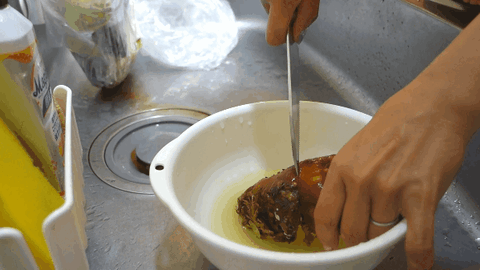
Oh, but don’t pour the hoya juice down the drain. We’re going to use it later on.
▼ At this point, feel free to try to trick yourself into thinking that this is just a sliced passionfruit.
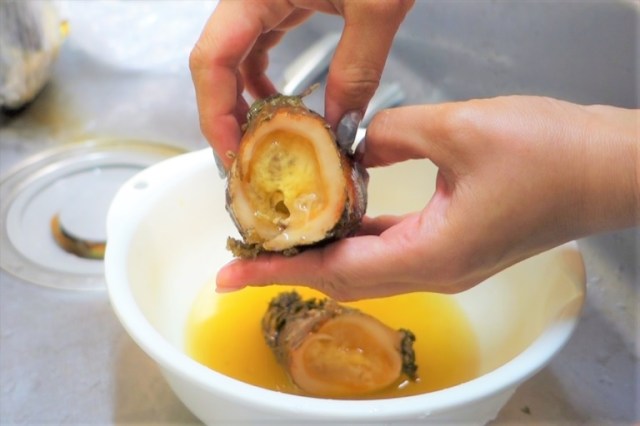
● Step 4
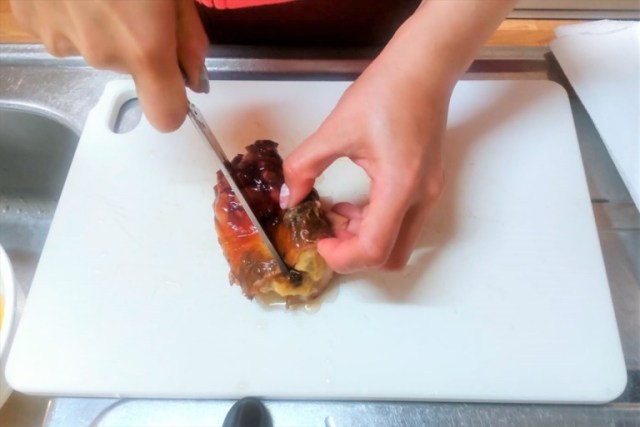
Slice the hoya in half lengthwise. If you’re doing as well as Haruka, this will be the first step without screaming, though whether that’s because Step 4 is easy or just because your brain is unable to recognize any more marginal additions in mental trauma at this point is debatable.
● Step 5
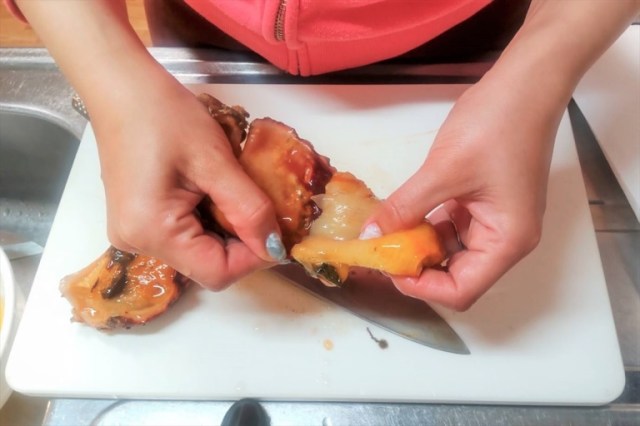
Peel off the skin.
▼ But don’t worry! The bizarre bumpiness is still present on the edible part.
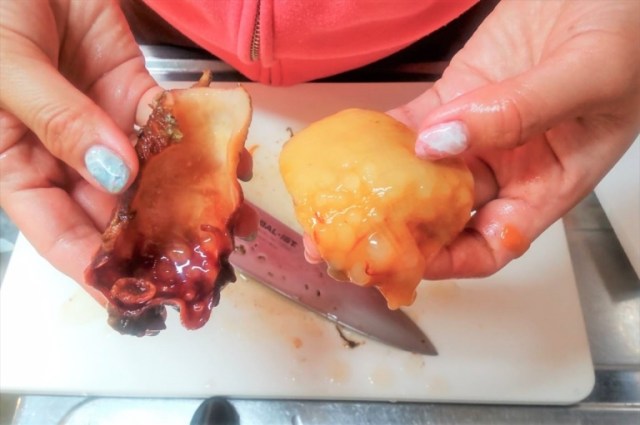
● Step 6
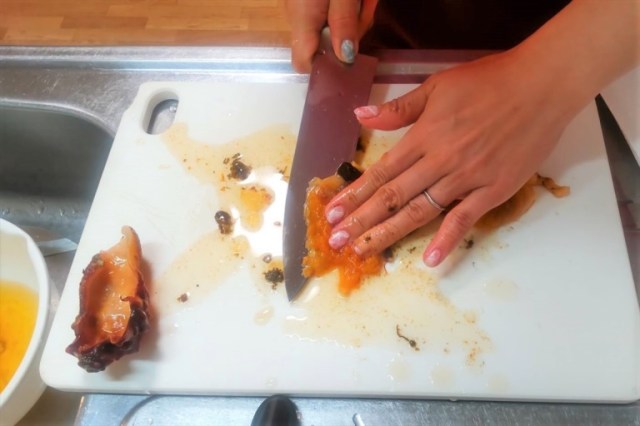
This is where you use the hoya juice. Scoop up the edible hoya meet, put it back in the bowl, and give it some gentle rubs to massage the liquid into it.
▼ With the liquid having a similar color to the hoya’s flesh, we’re pretty sure we’re washing it in its own blood, but like we said in Step 4, eventually the brain maxes out on how freaked out it can be.
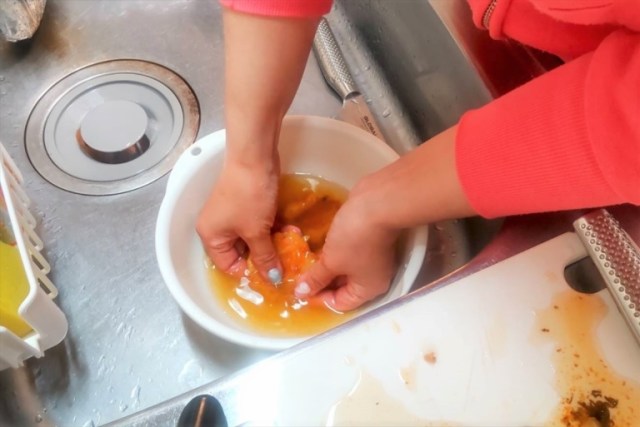
● Step 7
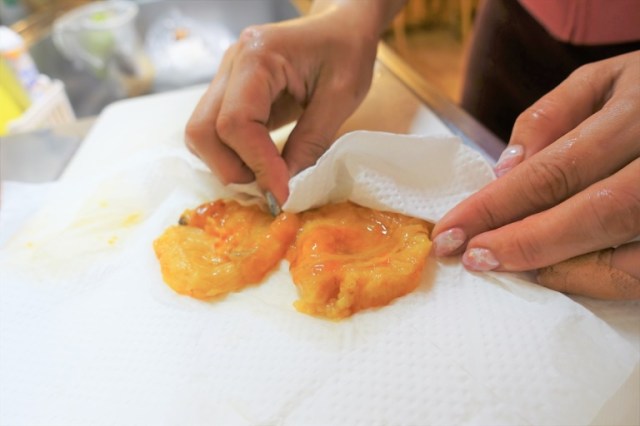
Remove the hoya from the bowl, wipe it off with a paper towel, and it’s ready to eat!
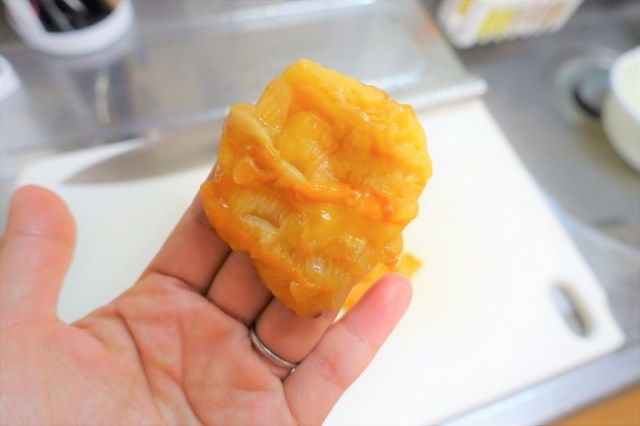
Haruka was sort of surprised at how little of the hoya ends up being edible, compared to its starting size. She paid just 162 yen (US$1.25) for it, though, so she could have afforded to buy more than one, though that also would have meant three times as much time spent slicing, draining, and peeling the sea creatures.
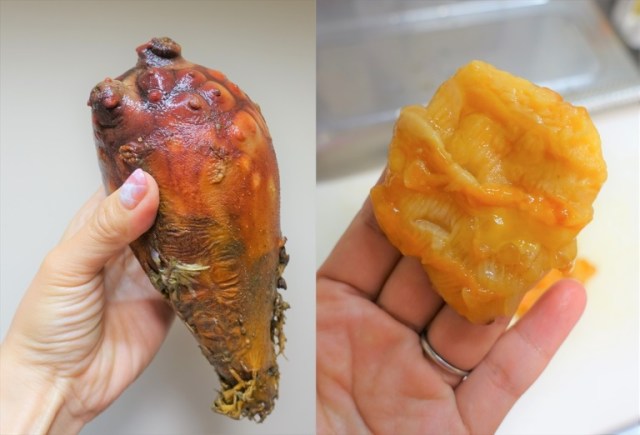
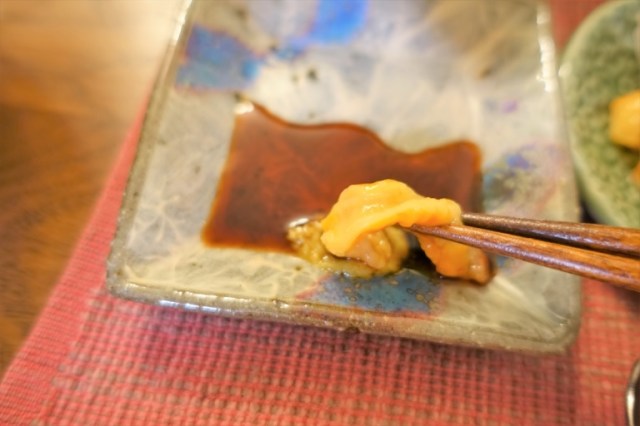
For as unusual as it looks, hoya sashimi is eaten just like other kinds of sashimi: slice it into bite-sized pieces, dab it in soy sauce, and pop it into your mouth.
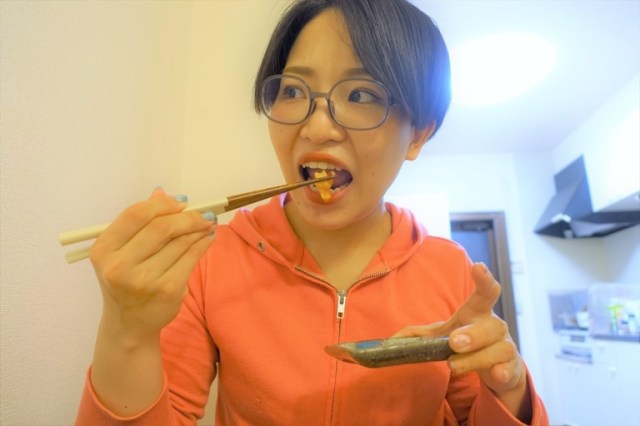
So how was it?
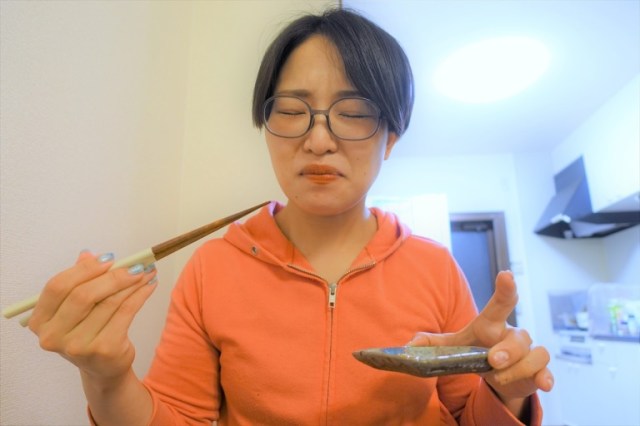
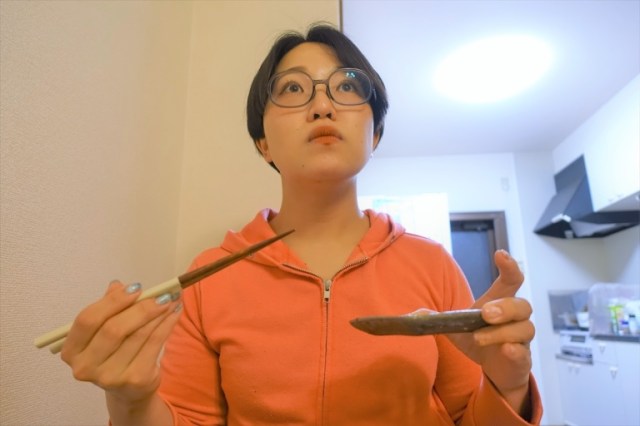
Much tastier than Haruka had expected!
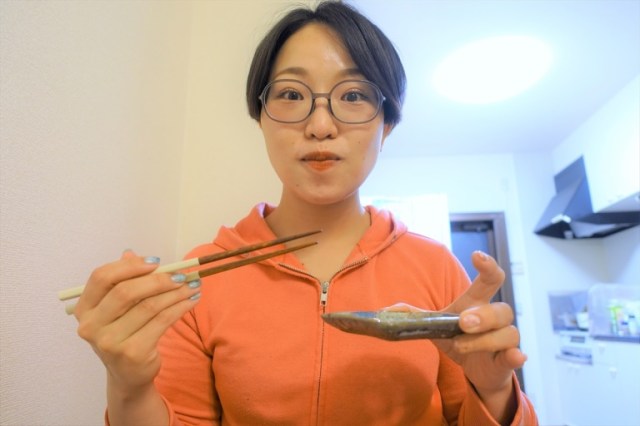
OK, maybe that’s not saying much, considering how shockingly non-food-like hoya looks both whole and at just about every step of the preparation process. But now that she wasn’t looking at it and could focus on its taste, Haruka detected bitter, salty, sweet, and umami sensations in the flavor profile, as well as a mild saltwater sensation. The texture reminded her of a large clam or oyster, but with unique crunchiness wrapped inside of the softer outer layers.
So the question now becomes would Haruka eat hoya again? The answer is yes. While she hasn’t been hit with intense hoya cravings since her taste test, she can understand why there are hoya fans in northeastern Japan, and she’s heard that the flavor is even better the fresher it is, so she’s thinking she’d like to try it again in Tohoku, where there’s more demand for high-quality hoya.
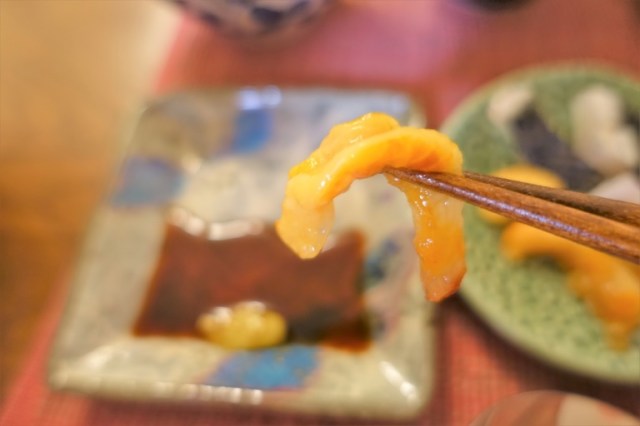
But would Haruka prepare her own hoya again? That’s a tougher question to answer, so maybe that eventual Tohoku taste test will take place at a restaurant instead of in her kitchen.
Images © SoraNews24
● Want to hear about SoraNews24’s latest articles as soon as they’re published? Follow us on Facebook and Twitter!
Credit:

0 comments:
Post a Comment